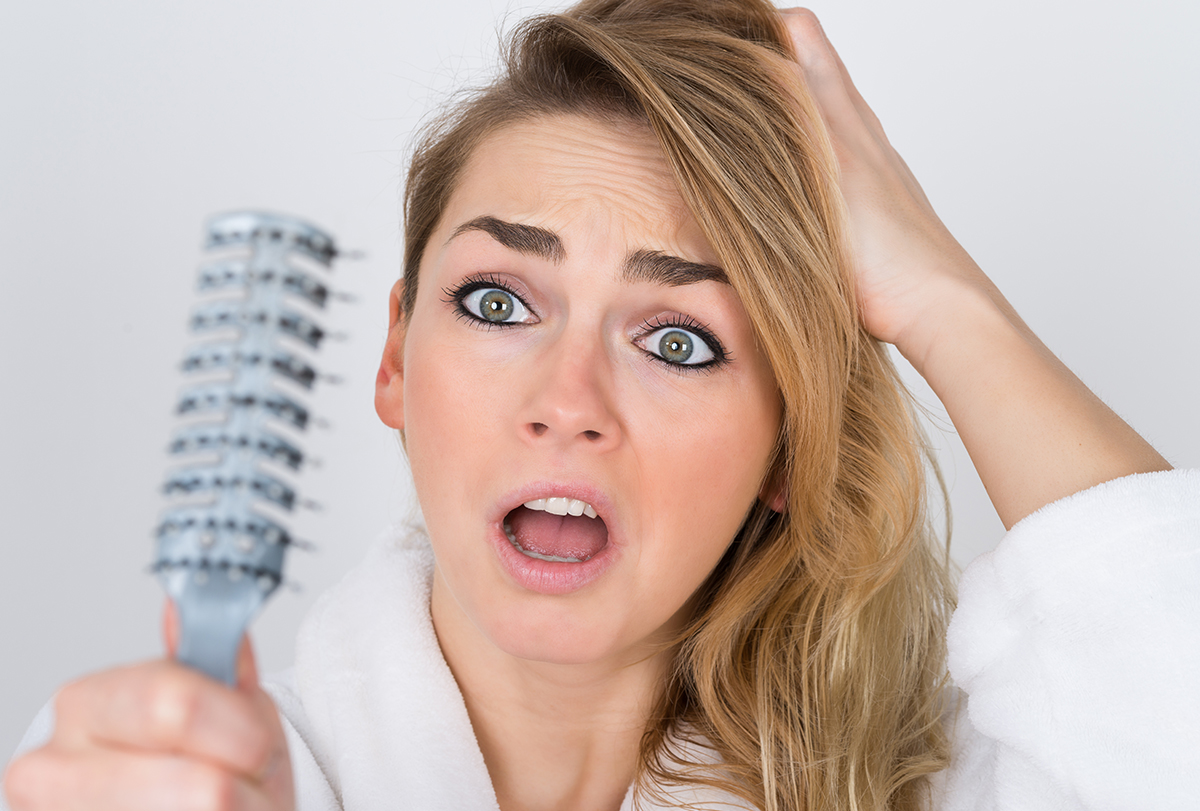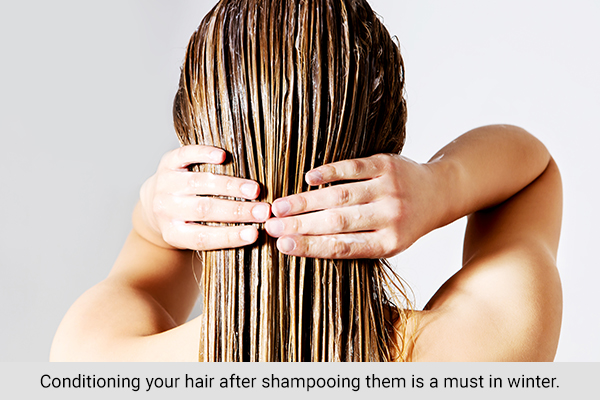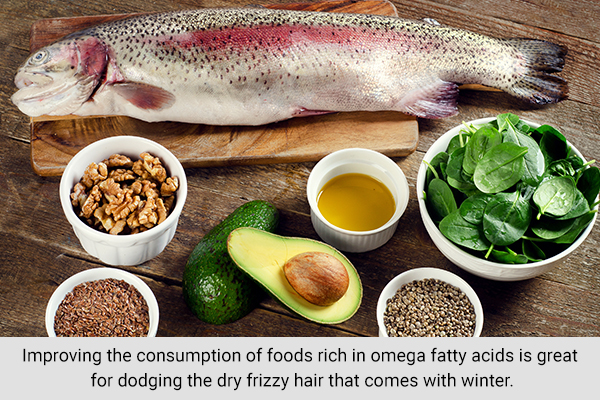In this article:
A lot of people love winter because of all the festivities, the snow-capped trees, the hill stations that can be visited, the mug of hot chocolate, and the hot water shower to alleviate all your stress at the end of a tiring day.

But the truth is winter can be a challenging time for your hair. The cold air can be fairly detrimental to your hair.
So, the question is how much hair fall is normal? Studies suggest that it is normal to shed between 50 and 100 hairs a day. Thus, even if you see a little more hair on your brush or your bed than usual, you shouldn’t worry as much as it is normal to lose up to 100 hairs every day. (1)
Seasonal Hair Fall
According to a study by the British Association of Dermatologists, there is a relationship between seasons and hair loss. In the study, as the season changed from late fall to early winter, the hair underwent a shedding phase.
The number of shed hairs reached a peak during August and September. During this time, the moderate loss of hair was about 60 per day.
Not only this, but the rate of growth of the beard was lowest in January and February (i.e., during the winter season). (2) This is because in winter, the air is dry and it takes away all the moisture from the scalp, leading to dryness. The problem of hair loss is more pronounced in those who have thin hair.
Research also confirms a seasonal pattern of hair loss. Both temperature and daylight levels have been thought to influence hair loss patterns.
A study done in eight countries to evaluate the effect of season on hair loss concluded that hair loss is very low during spring and more during summer and winter. Summer and autumn are associated with the highest levels of hair loss. (3)
Tips to Prevent Hair Loss in Winter
The following measures can help reduce hair loss during the cold season.
1. Applying hair oils frequently
To conquer hair problems associated with the chilly weather such as hair fall, itchiness, and excessive dandruff, all you have to do is massage your scalp with hair oil to moisturize it. (4)
The best oils for your hair in winter include:
- Olive oil
- Almond oil
- Coconut oil
- Mustard oil
Note: If you have very dry hair, you can use coconut oil as it creates a layer on your hair and seals the moisture inside. (5)
2. Using hair conditioners after shampoo

Conditioning your hair after shampooing is a must in winter because conditioners prevent frizzy hair by moisturizing the strands, leading to an improved hair appearance. (6)
Note: Use conditioners only on the tips of your hair and not on the scalp.
Conditioners also are known to make hair more manageable by detangling it. They also prevent winter hair dryness by replenishing the moisture content. (7)
3. Putting hair serums on your hair
Applying a hair serum as a protective shield will smoothen your hair and prevent dryness. It promotes hair growth and reduces hair fall and thinning. (8)
4. Staying stress-free
Stress is always bad news for your hair, and winter can be an extremely stressful season because the days are short and the nights are long, hampering your daily routine.
So, taking extra steps such as exercising, meditating, journaling, or spending time with friends and family to manage your stress levels is very important. (9)
5. Eating food rich in omega fatty acids

Improving the consumption of food rich in omega fatty acids is great for dodging the dry frizzy hair that comes with winter. Foods rich in omega fatty acids include: (10)
- Nuts
- Seeds
- Fish
- Avocados
- Flaxseeds
Stressors for Hair Shedding
A lot of people experience hair fall in winter. However, research also shows that more hair fall occurs from summer to winter (July to December).

Moreover, excessive shedding is more common in certain people and certain conditions, which include: (1)
- Those who lost more than 20 pounds of weight
- Mothers who have just given birth
- Those who are stressed
- Those who suffer from high fever
- Those who have just gotten a surgery
- Those who are or were on hormonal therapy
Additional Tips to Deal With Hair Woes in Winter
To avoid hair frizziness and other hair problems in winter, follow these suggestions:
- Limit the frequency of heat styling your hair in winter.
- Your hair is very dry in winter, so comb it gently using a brush with wide teeth.
- Do not wash your hair with water that is too hot or cold.
- Dermatologists promote the inclusion of iron, vitamin D, vitamin C, and sometimes vitamin A in the diet to ensure the wellness of your hair.
- Wear a cap to protect your hair from the dry winter air.
Most-Asked Questions
Is a hot water bath during winter bad for my hair?
A hot water bath is a winter staple, but it strips moisture from your hair. So, it’s better to bathe with lukewarm water.
Can stress increase hair loss?
Any kind of stress can cause as much as 70% of scalp hair to shed for about 2 months after the stressful event. This increase in hair loss is known as acute telogen effluvium. (11)
Final Word
Hair loss is greatly linked to seasonal changes and it occurs most frequently in the summer, although it is notably pronounced in winter as well because chilly air leads to a dry scalp, which results in hair breakage. That is why winter makes your hair look dull and lifeless.
But don’t worry – just pay more attention to your hair during the cold season by following the proper hair care routine.
- Was this article helpful?
- YES, THANKS!NOT REALLY


